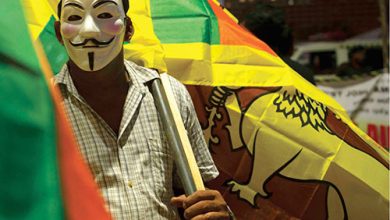REFORM AGENDA
SRI LANKA’S IMF TIGHTROPE
Tamara Rebeira reviews progress amid political and governance challenges

Following a brief wait, Sri Lanka reached a staff-level agreement with the IMF on economic policies, concluding the second review of the four-year bailout programme in March. Upon approval by the International Monetary Fund Executive Board, US$ 337 million in funding will be unlocked.
The IMF is optimistic over Sri Lanka’s gradual economic recovery from its worst financial crisis in decades, which stemmed from a sharp decline in foreign exchange reserves in 2022 and unfavourable policy decisions by the then administration. It is hopeful that macroeconomic policy reforms are starting to generate positive outcomes.
During the latest review and consistently in the past, the global lender has emphasised the importance of sustaining reform momentum, and tackling governance weaknesses and corruption vulnerabilities, to secure an enduring recovery and inclusive growth.
However, finalising the review depends on verifying contributions from multilateral partners and making sufficient headway with debt restructuring among other prerequisites.
Mission Chief for Sri Lanka Peter Breuer, speaking at a media briefing, said the IMF has received several proposals but “for us, what is absolutely key is that the programme objectives are achieved because with those, Sri Lanka has a chance of emerging from the crisis.”
He added: “We acknowledge in our press report the green shoots that we see for the economy; and that’s the beginning of a virtuous cycle and we have to keep it there. It is a knife edge and could easily go back to a vicious cycle, and that’s what we want to prevent.”
“So we’re willing to listen to alternative suggestions of how the programme objectives can be reached, and these must be realistic and achievable within the time frame of the programme,” said Breuer.
However, achieving lasting progress remains uncertain particularly due to various entrenched political interests. President Ranil Wickremesinghe’s attempt to organise a crucial meeting of party leaders to discuss the IMF proposals ahead of the review were futile with only parliamentarian M. A. Sumanthiran representing the Tamil National Alliance (TNA) in attendance – all other major opposition parties declined his invitation to participate in the discussion.
Meanwhile, negotiations between global investors and local authorities commenced with the aim of restructuring US$ 12 billion in bilateral debt and loans. The objective is to swiftly reach a deal especially given the upcoming elections.
In February, Sri Lanka submitted a proposal to holders of dollar bonds as part of its plan to overhaul 27 billion dollars of foreign debt encompassing bonds and loans. And the government has already finalised agreements with official creditors including India and member nations of the Paris Club, as well as holders of domestic debt.
Earlier in March, the president announced that he is pursuing a loan repayment moratorium until 2028. He informed parliament that the government is asking lenders to consider a plan to postpone payments for five years and repay the debts from the beginning of 2028 through 2042.
Moreover, State Minister of Finance Shehan Semasinghe is hopeful of resolving debt restructuring issues in the second quarter of this year to secure financing from the IMF, noting that external creditors are showing positive engagement.
Prior to the review, Human Rights Watch (HRW) urged the IMF to press the government to abandon draft legislation that would severely curtail civil society voices and jeopardise its programme.
HRW’s Deputy Asia Director Meenakshi Ganguly said: “As the economy collapsed in 2022, Sri Lankans demanded good governance and an end to corruption but instead, now face draconian laws and policies that threaten human rights and undermine reforms.”
Despite some positive indicators and efforts to revive the economy, Sri Lanka continues to grapple with entrenched governance issues, political hurdles and concerns over civil liberties, casting doubt on the sustainability of its reform agenda and effectiveness of external interventions.





